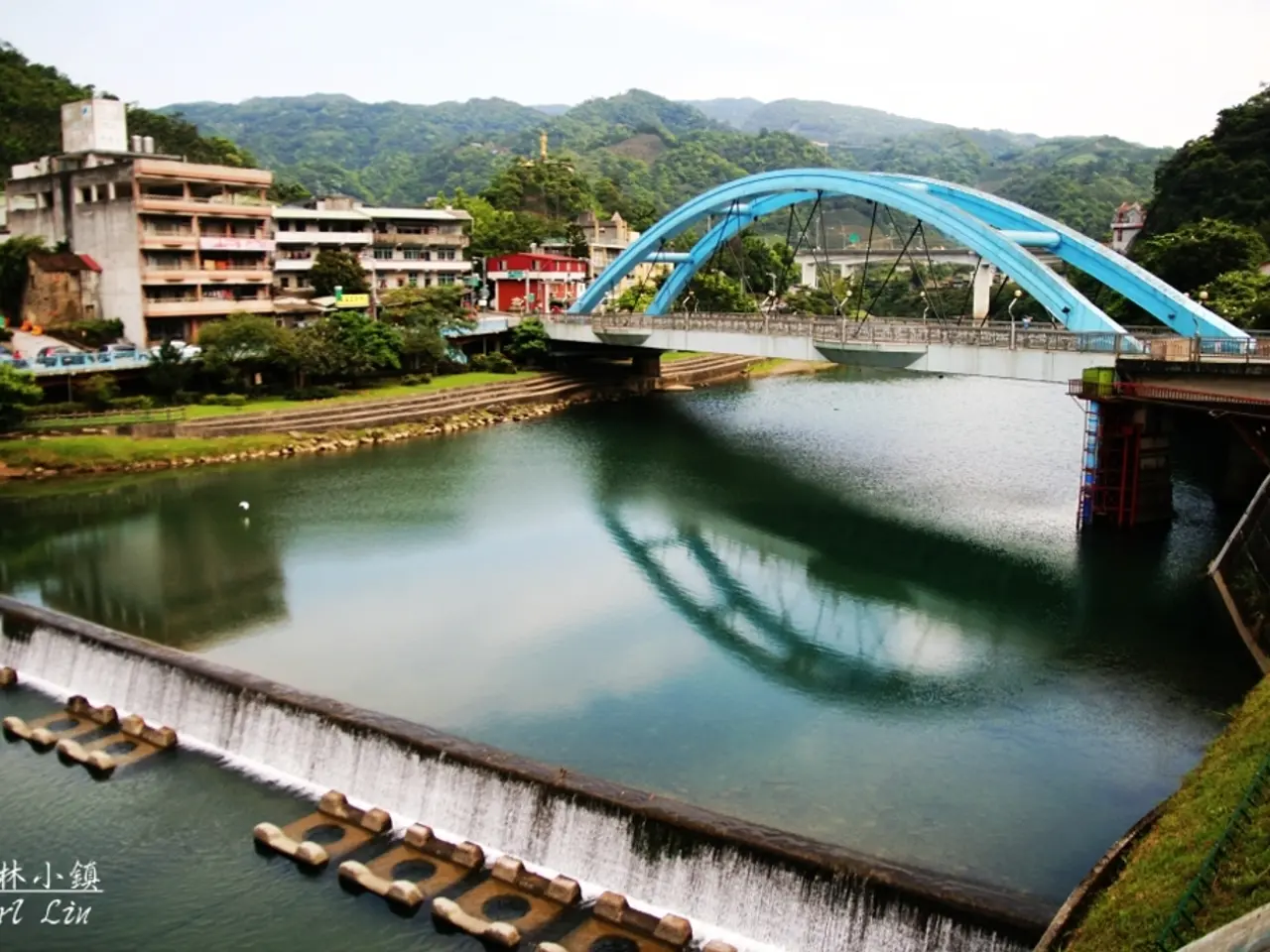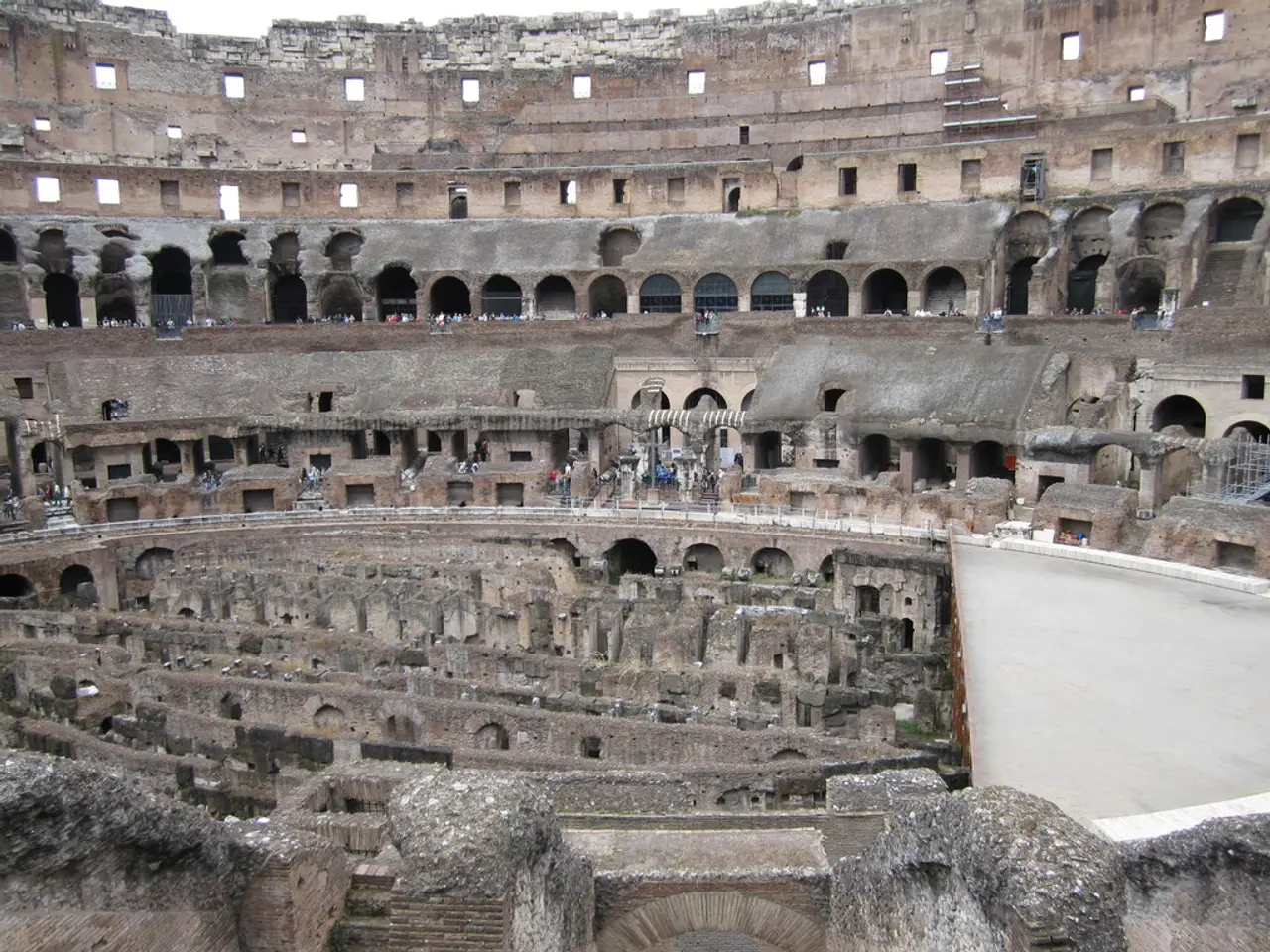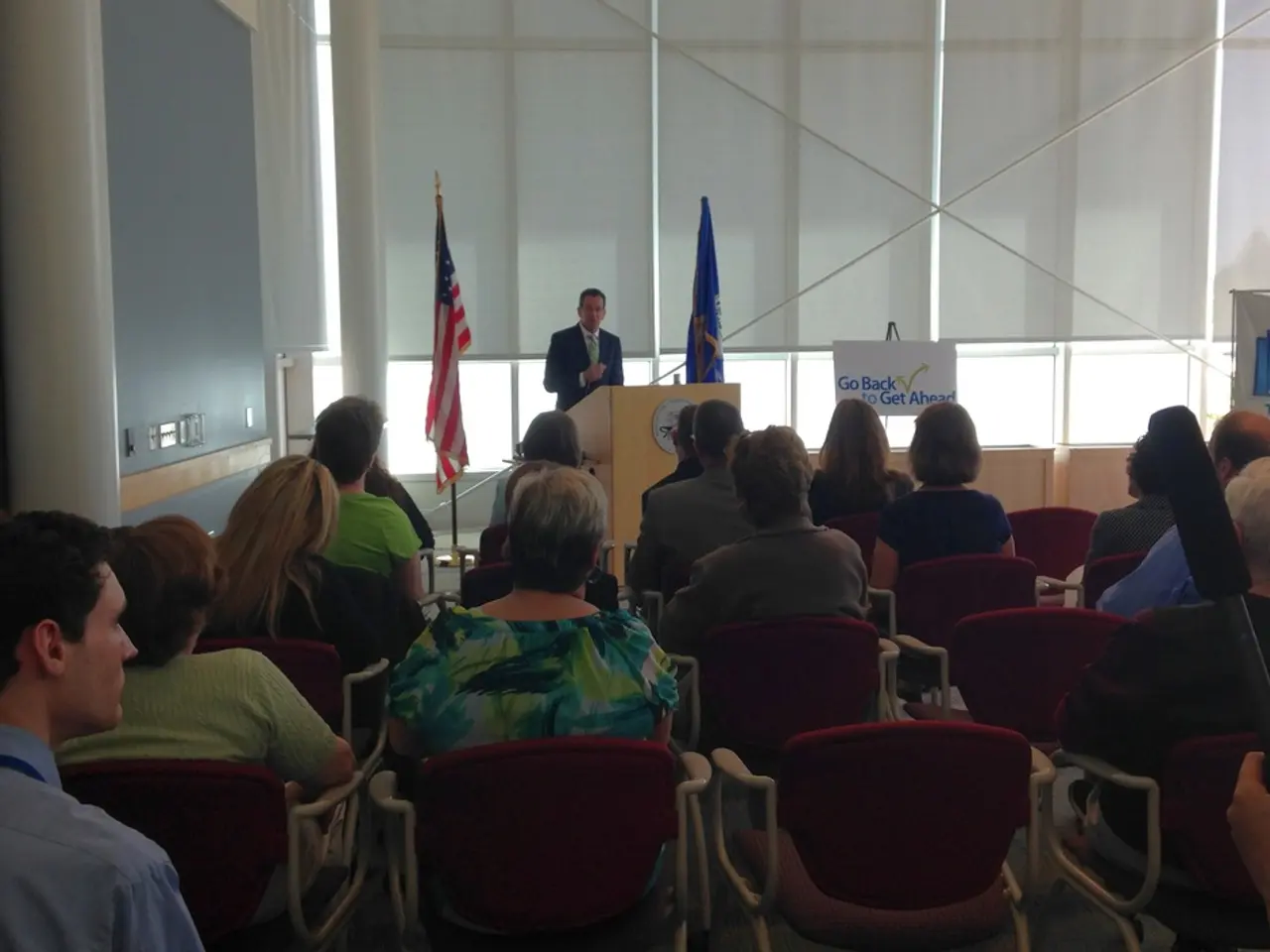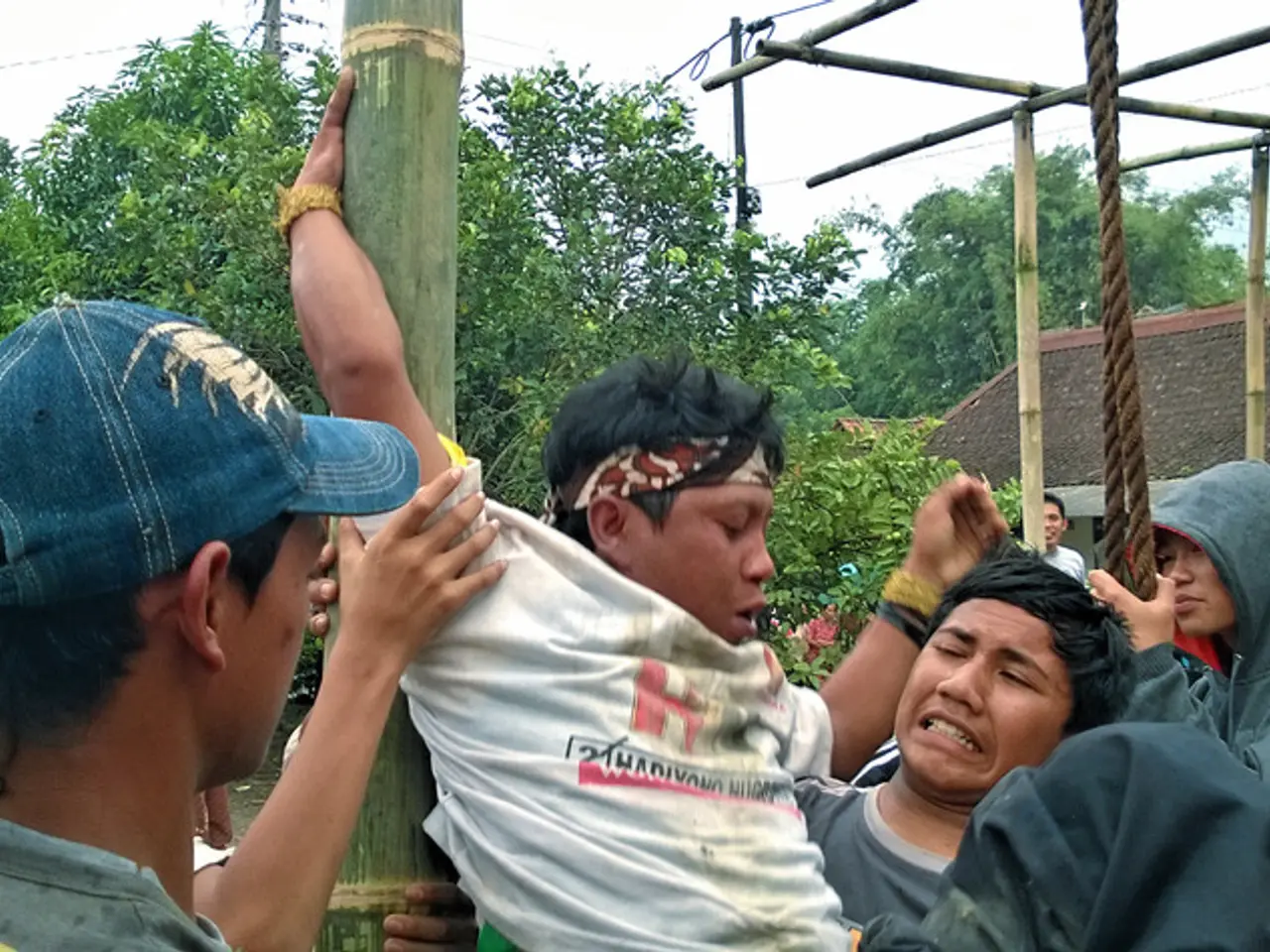Following a significant flood incident four years ago, Germany's Ahr Valley now presents a lush, verdant landscape.
In the heart of Germany lies the picturesque Ahrtal Valley, a region known for its vineyards and spa towns, which was hit by a devastating flood on July 15, 2021. The flood resulted in 134 fatalities, over 750 injuries, and extensive damage to infrastructure and buildings, with an estimated economic loss of up to $18 billion.
The flood was triggered by a stalled low-pressure system that caused torrential rains, swelling the Ahr River to 8 meters (26 feet) and shattering 500-year-old records. One resident, Julia Bertram, had to evacuate to vineyards while her husband moved valuables to higher ground. The flood destroyed Bertram's childhood home and 90% of her wine vintages from 2019 and 2020.
In the aftermath of the disaster, the mantra of the region became: Klimaschutz ist Hochwasserschutz - climate protection is flood protection. The Ahrtal region, heavily reliant on tourism, decided to embrace a radical transformation towards greener, more sustainable, and resilient reconstruction.
Rebuilding and resilience efforts are at the forefront of the Ahr Valley's rebuilding process. However, challenges persist in addressing the specific needs of sensitive infrastructures, such as care homes and schools for people with disabilities.
Projects like 'Henry 2.0' aim to introduce sustainable practices in disaster response, focusing on renewable energy and reducing emissions. While not specifically focused on Ahr Valley reconstruction, such initiatives reflect broader efforts towards sustainability in disaster management.
Commemoration and innovation workshops on sustainable waste management and modern early warning systems are part of the efforts to improve resilience. The emphasis is on climate adaptation, regional expertise, and European networking to respond more effectively to extreme weather events.
The Wohllebens Waldakademie is playing a significant role in the region's rebuilding efforts. The academy is working on a project to protect and restore Germany's oldest and last beech tree forests. They are also educating the next generation of forest guides in Bad Münstereifel, Germany.
New buildings in the park will feature green roofs, solar panels, and be connected to a district heating network that harnesses thermal energy from a healing spring, aiming for carbon-neutral, self-sustaining structures. Bertram's winery is being built with its cellar completely covered by excavated soil for extra insulation.
Bertram is also adopting sustainable practices in her vineyards. Instead of pesticides and mowers, she uses sheep to manage cover crops and provide natural fertilizer. Bertram navigates her vineyards using a solar-powered car.
Authorities are trying to restore 18 miles of damaged train track and rebuild the bike path a foot higher with permeable materials and integrated flood sensors. The Ahr-Radweg bike path, a popular tourist attraction, is being restored with these measures to ensure its resilience against future floods.
The region's sewage management system has also undergone a complete rethink. A new decentralized network is being built to prevent wastewater from flushing into the river during future events.
The academy produces a popular podcast, "The Hidden Life of Trees," in collaboration with the German TV network RTL, which reaches 120,000 listeners monthly. Their work is not only educational but also a testament to the region's commitment to sustainability and resilience.
As the Ahrtal Valley rebuilds, it serves as a shining example of how a community can transform in the face of adversity, embracing sustainability and resilience in every aspect of its rebuilding efforts.
- In the aftermath of the devastating flood in Germany's Ahr Valley, the region's focus has shifted towards addressing climate change as a means of flood protection, sparking a radical transformation towards greener and more sustainable reconstruction.
- Amidst the challenges of rebuilding and ensuring resilience, the Ahr Valley is spearheading initiatives in renewable energy, sustainable waste management, and modern early warning systems to adapt to extreme weather events.
- The Wohllebens Waldakademie, a significant player in the Ahr Valley's rebuilding efforts, is not only rebuilding with carbon-neutral, self-sustaining structures but also educating the next generation of forest guides and producing a popular podcast on the hidden life of trees, reinforcing the region's commitment to sustainability and resilience.






